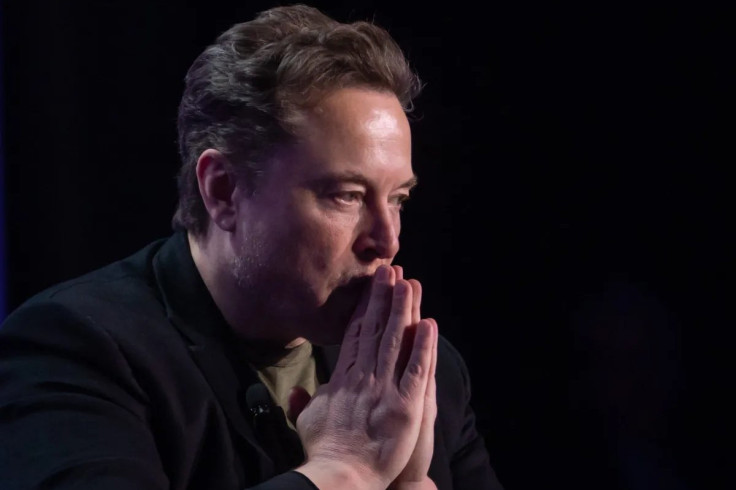
Elon Musk, the billionaire entrepreneur behind Tesla and SpaceX, has once again found himself at the centre of a heated debate after unveiling plans to deploy Tesla Cybertrucks and Starlink technology to provide free internet to wildfire-stricken areas in California. His announcement has sparked polarising reactions, reflecting the mixed opinions surrounding his efforts.
Taking to X, the social media platform he owns, Musk shared the plans, which included a delay in Cybertruck deliveries. "Apologies to those expecting Cybertruck deliveries in California over the next few days," he wrote. "We need to use those trucks as mobile base stations to provide power to Starlink Internet terminals in areas of LA without connectivity. A new truck will be delivered end of week."
Cybertrucks to the Rescue
Musk outlined his initiative further, revealing that the Cybertrucks equipped with Starlink terminals would be stationed in grid patterns across Greater Los Angeles and Malibu to maximise connectivity. Beyond internet access, the vehicles will also provide snacks and beverages for residents and be staffed with security personnel for safety.
According to a Fox Business report, this project is part of a broader plan by SpaceX to assist fire-stricken regions. Earlier this week, Musk announced the provision of free Starlink terminals, which were credited by journalists on the ground with enabling essential communication in areas where cellular networks were down.
"Starlink is the only reason we're able to hear and communicate with you guys right now because there's absolutely no cell service at all in this whole area," a reporter stated in a video Musk shared.
Divisive Reactions to Musk's Efforts
California hates you and Trump.
— Bella (@stockbella) January 12, 2025
Musk's announcement sparked both praise and criticism. One user on X lashed out, writing, "California hates you and Trump." Musk, addressing the backlash, responded: "That is true of some people in California, and the press will of course accuse me of grandstanding, but, if this helps save even one house or maybe even someone's life, we should still do it."
Other users were more supportive, with one asking how they could contribute their Cybertruck to the relief effort. Musk responded by encouraging them to "ride around in your truck in the devastated areas with a Starlink terminal on the roof and open WiFi."
Musk Criticises California's DEI Policies
As part of his broader critique of California's governance, Musk had previously took aim at the state's Diversity, Equity, and Inclusion (DEI) initiatives. He suggested that such policies, while well-meaning, could hinder effective responses to crises like wildfires.
Musk emphasised the importance of prioritising efficiency and results over bureaucratic processes, hinting that DEI considerations might unnecessarily complicate decision-making in emergency situations.
This echoes Musk's earlier criticisms of California's regulatory environment. He stated that wildfires in the state are "easily avoidable" but blamed "nonsense regulations" for stalling preventive actions. "Year after year homes burn down, and more people die," he wrote in a separate post.
A Call for Technological Solutions
Putting out fires before they spread does not seem like a serious technological challenge in a world with @SpaceX, @xai and @anduriltech.
— Bill Ackman (@BillAckman) January 12, 2025
So @elonmusk and @PalmerLuckey, why don’t we start a company that uses satellites, AI, and drone technology to put out fires before they…
Adding to the discussion, billionaire hedge fund manager Bill Ackman proposed leveraging technology to combat wildfires more effectively. In a post on X, Ackman suggested a collaboration between companies like SpaceX, xAI, and Anduril Industries to create a satellite and drone-based system for monitoring and extinguishing fires before they spread.
"One can envision satellite monitoring, rapid drone investigation, and drone swarm water delivery," Ackman wrote. He argued that such a system would not only reduce human risk but also sidestep issues like DEI involvement in critical operational decisions. Ackman concluded by expressing interest in investing in the idea, highlighting its potential to boost real estate values in California.
Despite the divisive opinions, Musk remains committed to his vision of using innovation to address California's wildfire crisis. From deploying Cybertrucks to providing free Starlink internet, his initiatives aim to bridge communication gaps and bring relief to affected communities.
Whether these measures will win over his critics or add fuel to the fire of ongoing debates about his approach remains to be seen, but they undeniably reflect his ambition to tackle challenges head-on.







